As an avid horror reader who’s quick to recommend books to anyone who stays still long enough, I’ve gotten very used to fielding follow-up questions like “But how scary is it really?” and “I can’t watch horror movies at all—should I still read this?” Obviously fear is highly subjective—what slaps my “turn all the lights on, you’re not sleeping tonight” buttons may be entirely snooze-worthy for you—but I’ve come to have a pretty accurate understanding of how people are going to respond to a given book.
While the name of the genre tends to imply a uniformly high scare density, horror is a very broad genre, and there really is something for everybody—whether you’re a horror pro who likes the gore and tension dialed up to 11 or a gentle soul who can’t deal with even a light dismembering.
[A quick note to preempt some comments: there’s no Stephen King on this list because, frankly, nobody needs my help to find Stephen King books. Also, Pet Sematary is his scariest book. BYE.]
Low Tolerance: Hocus Pocus and Practical Magic are about as scary as you’re willing to go.
Read: White is for Witching by Helen Oyeyemi
Buy the Book
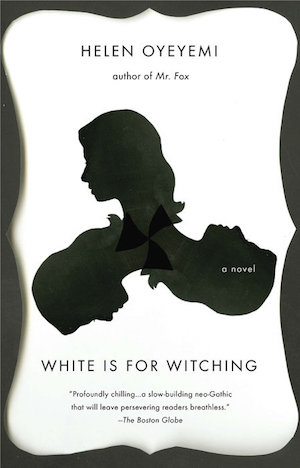

White is for Witching
This is the haunted house novel on gentle mode, but that doesn’t make it any less stunning. All the elements are here: a hostile house with fairly definite opinions on who it does and does not like, a girl who eats chalk and seems to be disappearing into the woodwork, a menacing elevator, and, of course, ghosts. It’s unsettling, eerie, and beautiful, but never tips over into being outright terrifying, preferring to dwell in the atmospheric gray area between supernatural and mundane horrors, and in the ways we are and aren’t complicit with our circumstances.
Other recommendations at this level:
- The Monster of Elendhaven by Jennifer Giesbrecht
- We Have Always Lived in the Castle by Shirley Jackson
- The Library at Mount Char by Scott Hawkins
Medium-Low Tolerance: Zombieland was about your speed.
Read: Lovecraft Country by Matt Ruff
Buy the Book
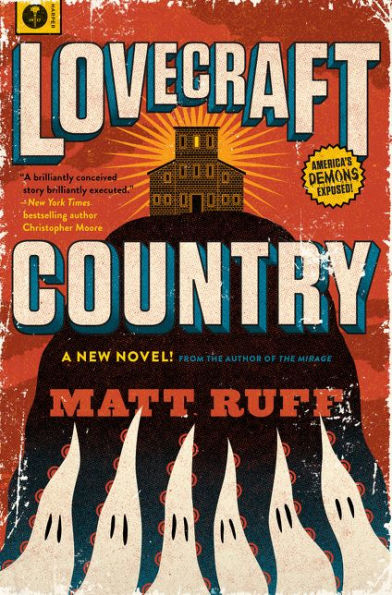

Lovecraft Country
More a series of linked stories than a traditional novel, Lovecraft Country (soon to be an HBO miniseries produced by J.J. Abrams and Jordan Peele) is a remarkable accomplishment. Matt Ruff weaves together lightly fictionalized history (for example, the Safe Negro Travel Guide, this novel’s equivalent of the Green Book), cosmic horror, and the quotidian horrors of midcentury anti-Black racism, and populates his novel with a cast of fully-realized and fascinating characters. There’s something in this novel for everybody – one episode focuses on a haunted hotel, while another sees an astronomer walking through a portal into another world – and while the supernatural elements here can be pretty creepy, the emphasis is always solidly on character and family. And, cosmic horror aside, it’s a chilling depiction of the insidious effects of living in a country that hates you.
Other recommendation at this level:
- In The Woods by Tana French
- The Changeling by Victor LaValle
Medium Tolerance: Get Out? Us? No problem.
Read: Wylding Hall by Elizabeth Hand
Buy the Book
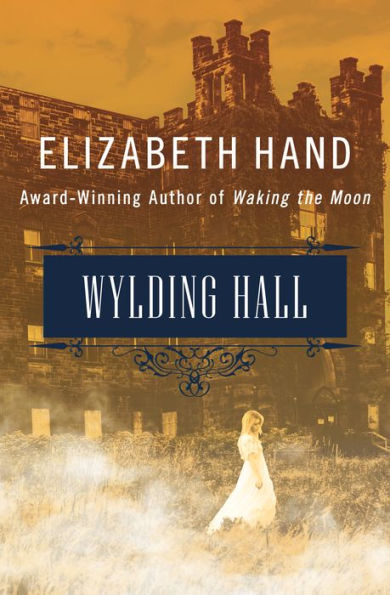

Wylding Hall
This short, engrossing novel is an under-appreciated gem, and the perfect creepy October read. It’s the story of a legendary acid folk band and the summer they spent recording their seminal album in a decaying country house, told through a series of interviews with the surviving members of the band and their manager. Julian, the band’s driving creative force and lead singer, disappeared that summer, a mystery that remains unsolved decades later. But that wasn’t the only strange occurrence at Wylding Hall during those few months—the house, the surrounding woods, and the neighboring town were all more than a little uncanny. And then there was the girl in the white dress who appeared at Julian’s side one night and disappeared when he did…
This book is tense and creepy throughout, but there’s one culminating scare that I still find myself thinking about when I’m staring at the ceiling at 3am.
Other recommendations at this level:
- Zone One by Colson Whitehead
- Broken Monsters by Lauren Beukes
- Into the Drowning Deep by Mira Grant
- The Family Plot by Cherie Priest
Medium-High Tolerance: You made it through It Follows, even if you’ve been looking over your shoulder ever since.
Read: The Fisherman by John Langan
Buy the Book
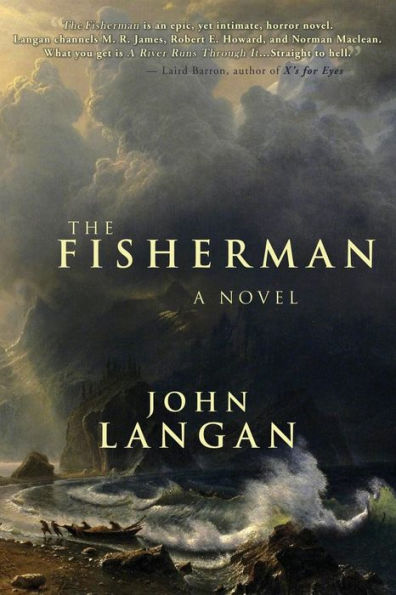

The Fisherman
This is a word-of-mouth favorite among the horror fans I know, an unconventionally-structured tale that examines grief, loneliness, and the limits of friendship. Dan and Abe, both widowers, have found companionship through a mutual love of fishing. They’ve heard rumors of a spot where the creek runs clear and deep and the fish are plentiful—where downright magical things can happen—and despite a warning from a fellow fisherman, they’re determined to go find it. But what they find there is well beyond anything they could ever have hoped for, or feared.
A good chunk of the narrative here is set in the colonial past, in a community of immigrant workers building the Ashokan Reservoir in upstate New York who’re plagued by something unspeakably evil. In the hands of a lesser writer, a formal risk like that could bring the story grinding to a dead halt, but Langan writes with a deep understanding of human fallibility and emotion, and it’s a thrill and a terror to go along for the ride.
Other recommendations at this level:
- Occultation by Laird Barron
- Bird Box by Josh Malerman
- The House Next Door by Anne Rivers Siddons
High Tolerance: You dozed through Hereditary.
Read: Hex by Thomas Olde Heuvelt
Buy the Book
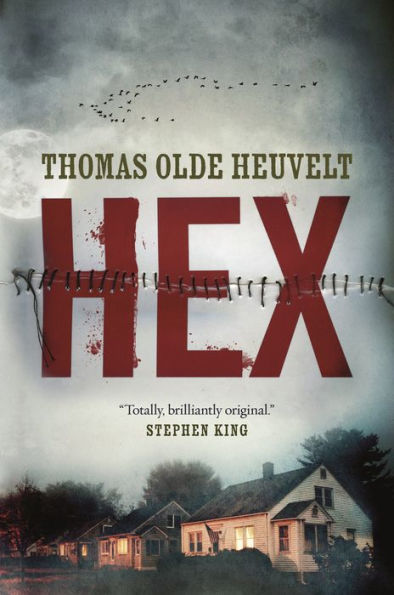

Hex
If you have a strong stomach and you’ve been reading horror for a while, you may find yourself (as I sometimes do) chasing the increasingly elusive high of realizing you’re in the middle of the scariest book you’ve ever read. I do think that this is the most subjective out of all of these levels, because it really does depend on what’s the most scary to you personally. For a lot of people, myself included, that’s hopelessness—the scariest of the scariest for me are the bleak books, the ones where there’s no light at the end of the tunnel. Hex sits head and shoulders above the rest on that front.
The residents of Black Spring can’t leave. There’s a curse on the town, and her name is Katherine. She’s been dead since the 1600s, when she was executed for witchcraft, but that doesn’t stop her from appearing around town at random—in the woods, on the streets, and in people’s homes. The town elders have worked very hard to keep Katherine a secret from the rest of the world, but for a group of younger residents, that secrecy is a yoke they’re not willing to bear any longer. Their efforts to expose Katherine will have devastating consequences for their families, and the town as a whole. I’m not willing to tell you much more about the plot, because it’s worth going into this one knowing as little as possible. Just know that this book goes there, in every sense.
Other recommendations at this level:
- The Cipher by Kathe Koja
- House of Leaves by Mark Danielewski
- Brother by Ania Ahlborn
- A Head Full of Ghosts by Paul Tremblay
Emily Hughes wants to talk to you about scary books. You can find her elsewhere in Electric Literature and Brooklyn Magazine. Formerly the editor of Unbound Worlds, she now writes a newsletter about horror literature and tweets bad puns @emilyhughes.










